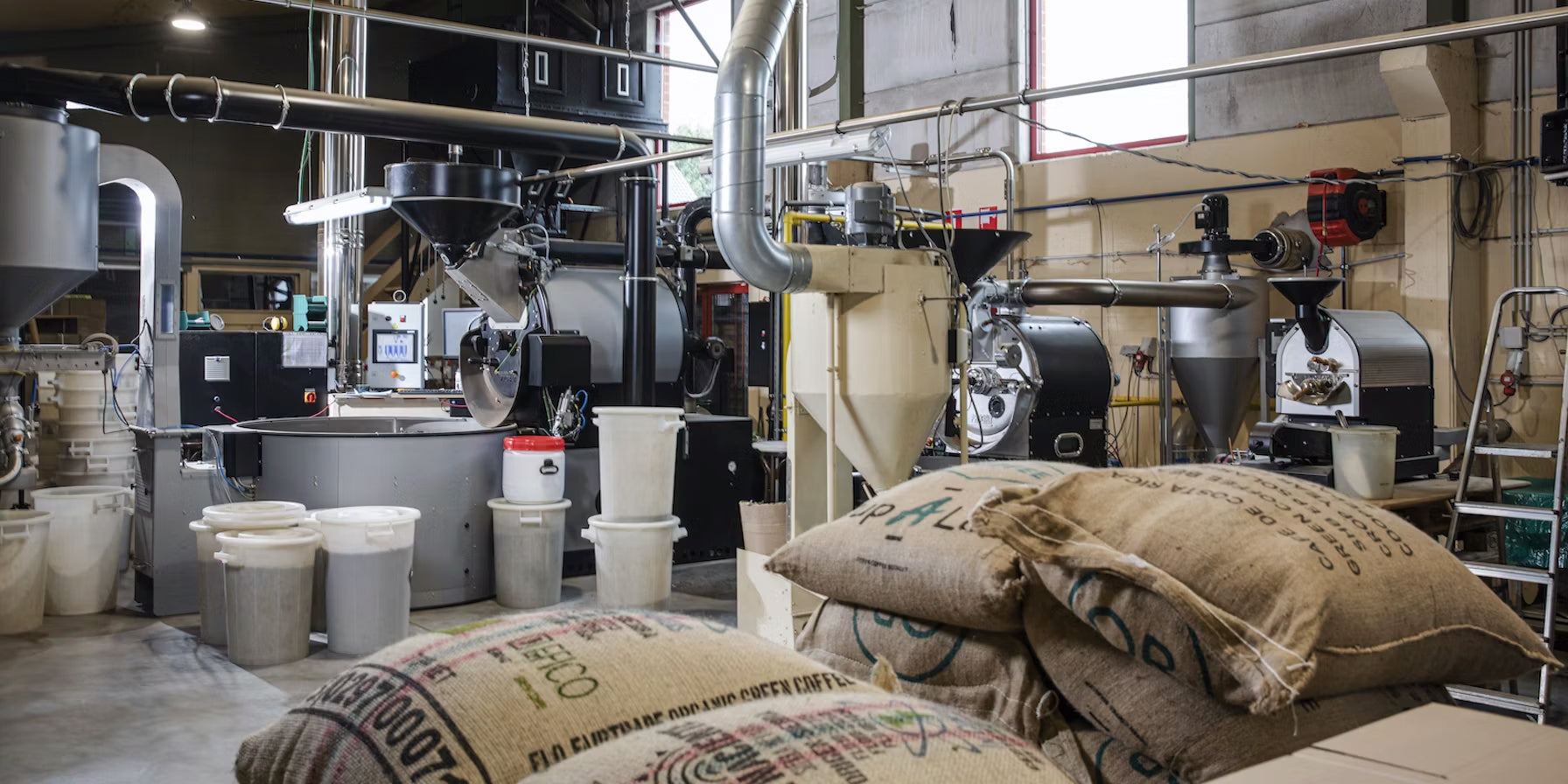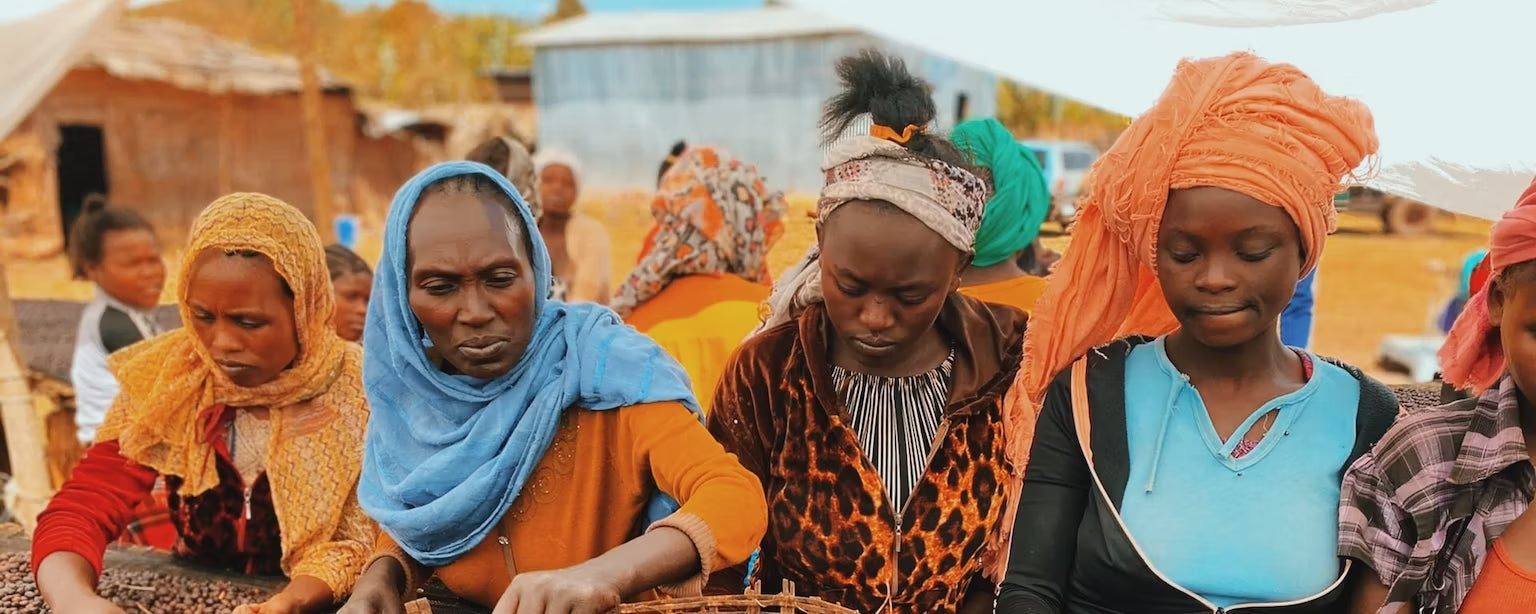
Why choose for Direct Trade?
At OR Coffee we buy our coffee directly at the origin. We want to be honest and transparent about where we buy our coffee. Over the years we collected a lot of knowledge about growing coffee and a netwerk of farmers all over the world. Together we can support and grow communities all over the world.
Ethics
- Because we don’t work with traders or middlemen, we can pay the coffee farmer a fair price for his work.
Quality
- Because we buy our coffee directly from the coffee farmer, we have direct access to the highest quality coffee.
Knowledge
By sharing the knowledge we collected over the year, we can help farmers and ensure quality coffee.
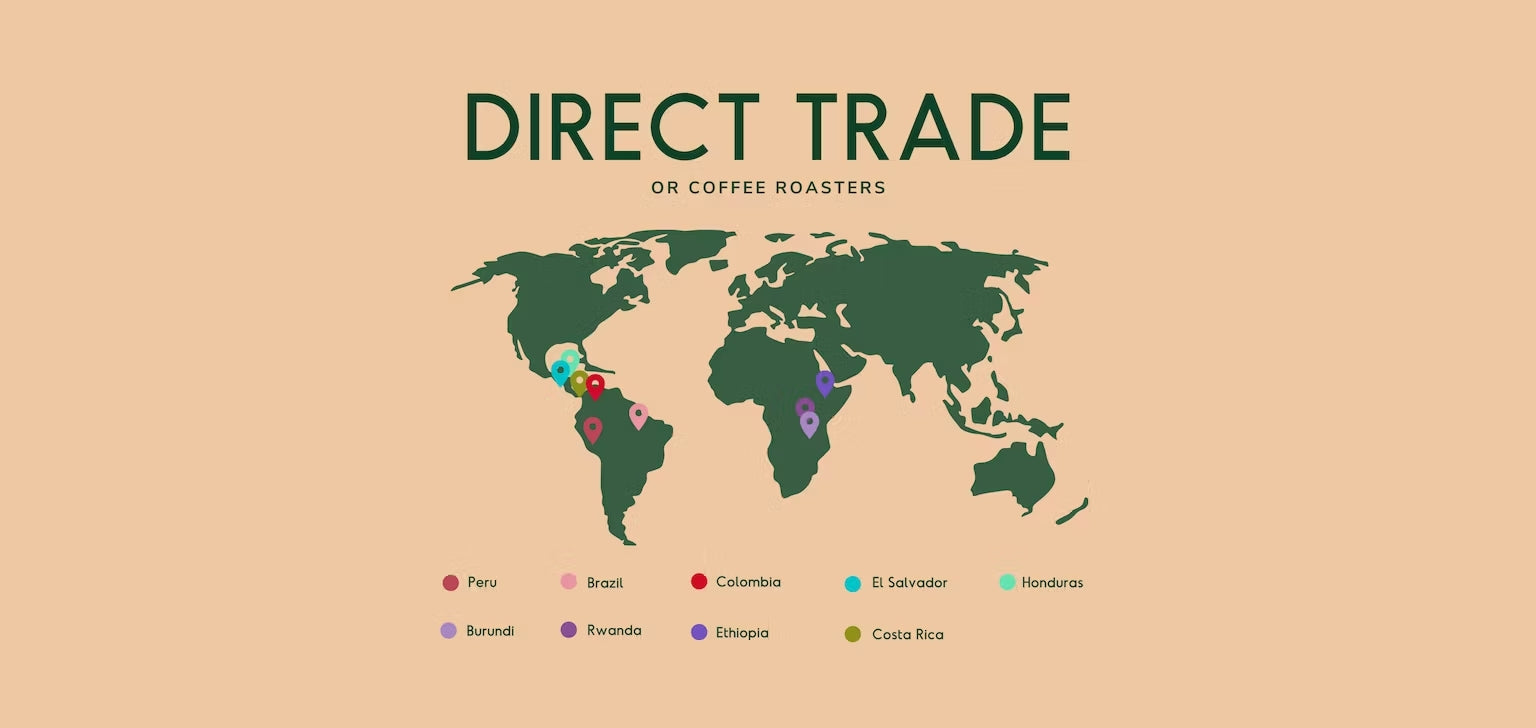
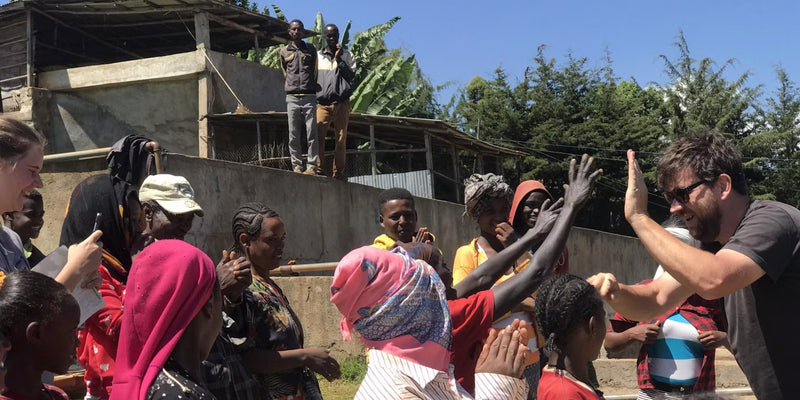
Countries of origin
We work with eleven countries of origin at OR Coffee Roasters, nine out of eleven we work directly with. These are: Brazil, Peru, Colombia, El Salvador, Costa Rica, Honduras, Ethiopia, Burundi and Rwanda.
For the two other countries; Kenya and Guatemala, we started working with importers that we trust a long time ago. We are still very happy about the work they do and feel like we couldn't do it any better way, so we decided to keep working with them. But this is an exception in the way we work.
When we start a relationship with a producer or the owner of a washing station, it is not just for one year. We will buy coffee from them every year and we grow together. We will give feedback and tell them why we buy specific lots and why not. But even in the 'off' years (think like wine) we will support our producers in every way we can.
We try to visit our producers as much as possible, to sustain the connection and learn from each other. We learned through the years that we cannot and do not want to buy coffee if we haven't been to the origin and if we haven't met the producers. Because there is so much that can go wrong and so much that you don't know, when you haven't been at the origin.

Brazil
We have been working together with the 2 brothers Walter and Ednilson since 2010 and we’ve been buying their coffee each year. In the meanwhile we have a separate area within their Fazenda exclusively for us. This section is called Pedra Bonita, within this section we have several specific lots being different in variety and processing such as Pedra Preta and Boa Sorte.
The Dutra Family grows over 500 acres of coffee today. They work sustainably and pesticide free, some lots are already organic certified and they are working towards certifications for all their coffee. They are the best example for specialty coffee in Brazil. The secret of their success is passion, hard work and a continuous commitment to improving quality!
Tom and Katrien visit Brazil every year, since it is one of our most important countries of origin.
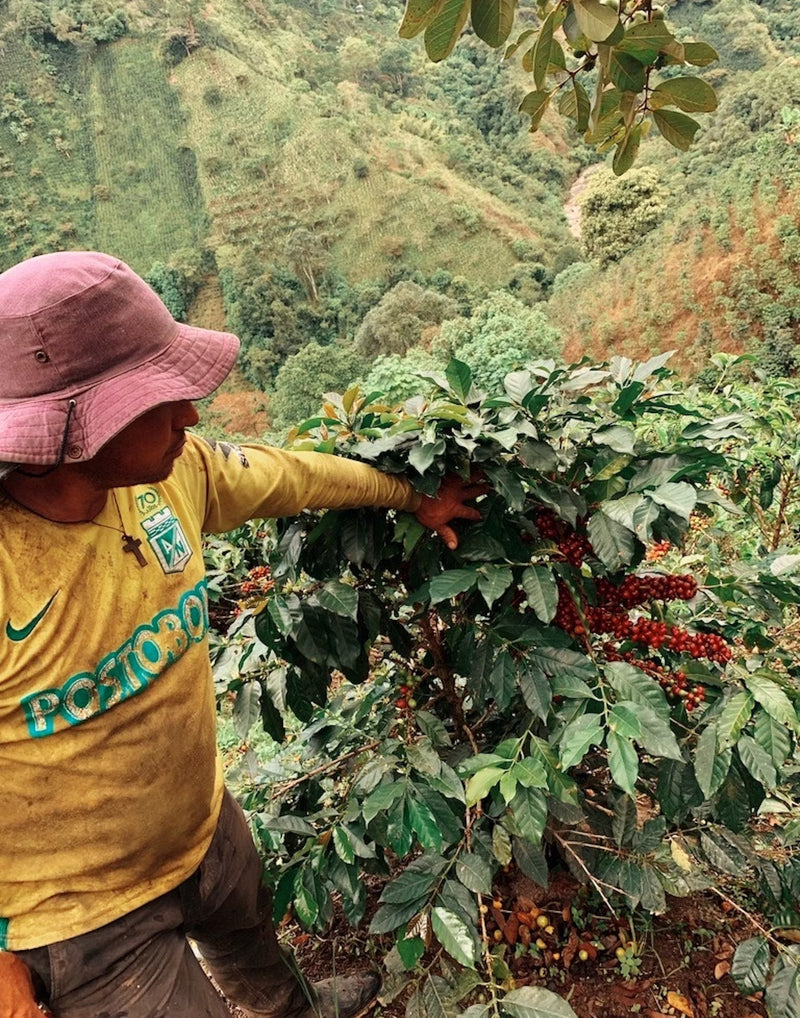
Colombia
We waited a long time to start buying coffee from Colombia, because we didn’t really have connections there. Tom visited for the first time in 2016, because he was invited to be an independent cupper (jury) for a big coffee competition. He visited some producers afterwards but didn’t meet the right people.
It was only in 2019 that Katrien visited Colombia again to look for producers. Like always, she visited a lot of producers all over Colombia. In the end she decided to start working with Adriana from Inconexus, because of the high quality coffee and the transparency she provided. Adriana started to put up coffee labs in the south of Colombia, because she understood that a lot of coffee producers in her country didn’t know how to optimize the quality of the coffee they were growing. She has 3 in-house Q-graders who work in the field with the producers to check the quality of the coffee and she showed the producers ways to up the quality of their coffee.
The producers bring their coffee to her and she processes the coffee for the producers. This is because it would cost too much money for every producer to process its own coffee. So we buy the coffee from Adriana and she pays the producers for their coffee. We trust her because she is so transparent. We also met and know the producers, because other than for example in Ethiopia where there are hundreds of smallholders, it are only a few producers she works with.
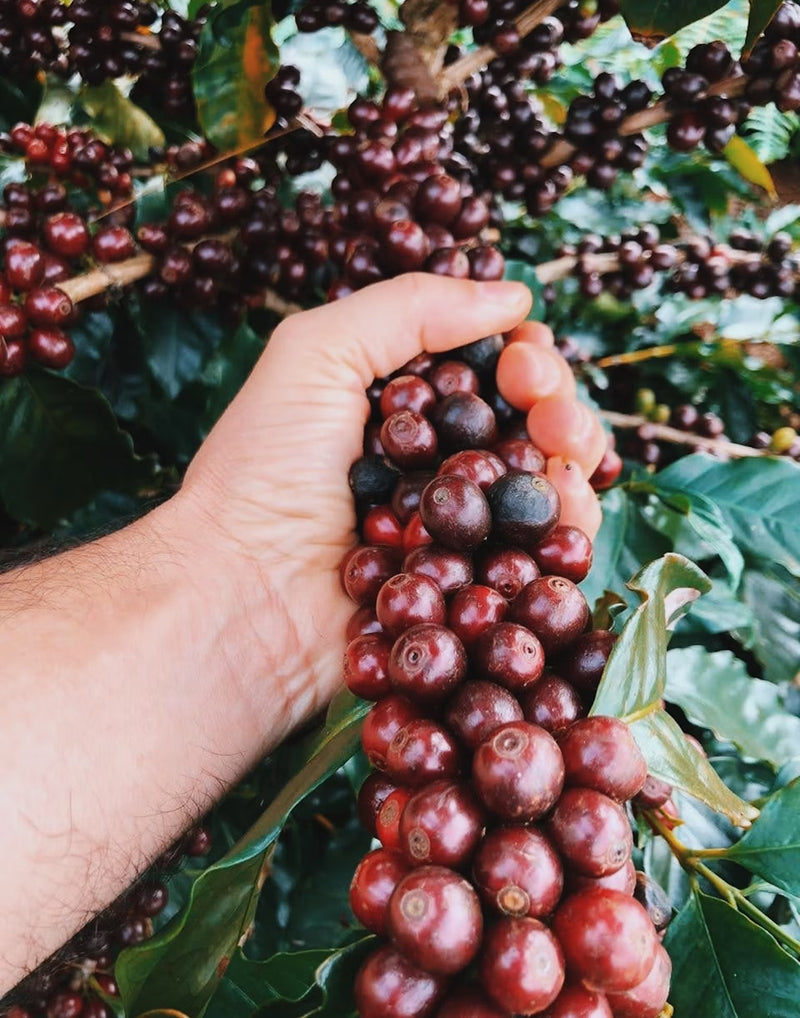
Peru
Katrien visited Peru for the first time in 2019. At that point it was already on our coffee list for a while, but we hadn’t had the chance to visit the country. We had been cupping some samples and had some contacts, but as always, we didn’t want to start working with someone before visiting them.
And so Katrien went to the north in the region of the Amazonas, close to the Andes and Cajamarca a bit more to the west. She visited six producers, where we ended up working with one producer (family) today. As always we got a lot of tasty samples, but once we are on the field, we notice that some of to producers miss the knowledge and equipment to provide us with excellent coffee every year. Sometimes a good sample can be one good shot.
We visited one cooperative in San Ignacio, a province of Cajamarca, where our contact person was Ludmila. The cooperative existed already a long time, but they were very low profile. Looking back to it, they maybe even downsized themselves because they didn’t know how good their coffee was. We cupped multiple coffees at the cooperative, where the tradition was to work with the washed fermentation process. But they set aside a small table with some natural, anaerobic and honey coffees as well. We were completely blown away by the anaerobic coffee, but Ludmila didn’t really know what the producer had done with his cherries. So we went to see the producers of this amazing coffee and met a very shy family of brothers. One of them had looked up a video of the anaerobic process on youtube and had given it a try. What a succes!
They only had 2 of 3 bales, so we asked if we could buy them. They were very surprised to hear our price range for these kind of coffees and were very happy to sell them to us. And so we started our relationship with this amazing family, where we are still buying coffee from today.
Maybe you want to ask: why only one family? Well, we prefer to have a sustainable relationship with one producer that we can trust, over buying from a lot of different producers every year. As we already explained before, it is important for us to build a relationship and learn from each other.
A little bonus: the coffees from the producer in Peru are all organic certified.
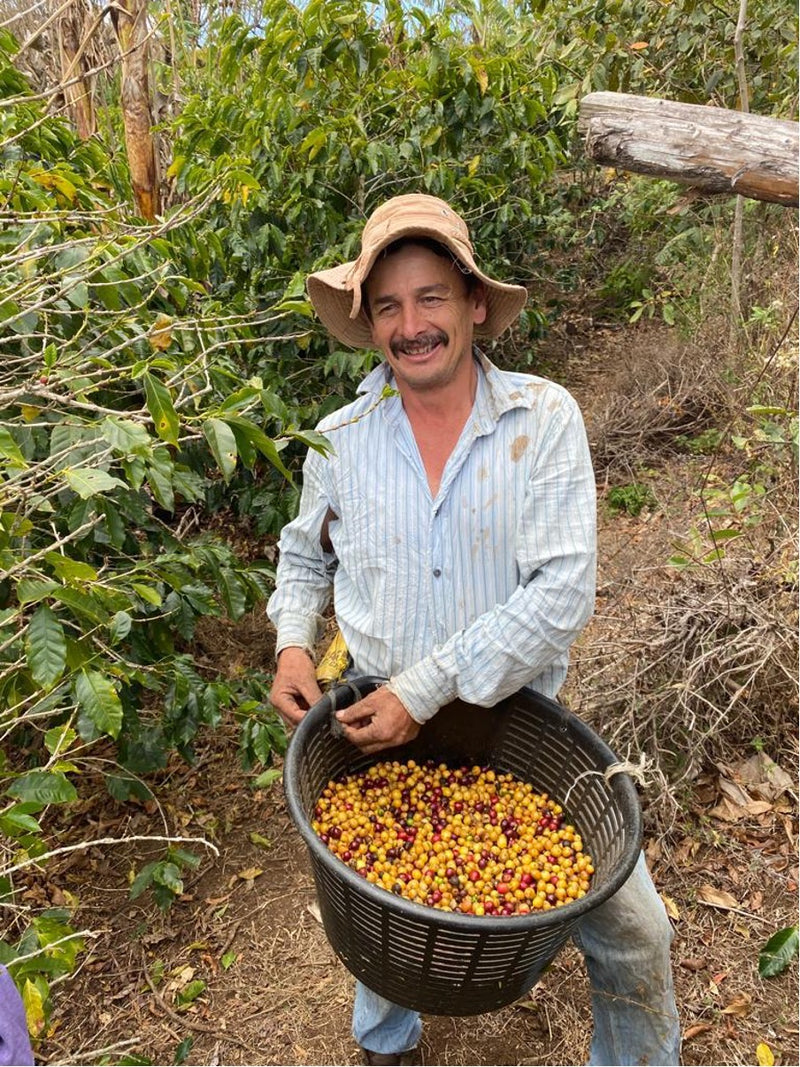
Costa Rica
We work with our good friend Luis Campos for 6 years now. Tom went to Costa Rica for the first time without having any contacts. He met Luis there, who was already in coffee for a long time. He was the first man to try the Anaerobic process, and is still experimenting with new fermentation processes everyday. We love the taste bombs he drops on us every year!
He is the owner of a dry and wet mill where multiple producers bring their coffees to be processed. He has his own coffee plantation but that one is only around 1400m. That is why he decided to work with smallholders that have plantations around 1800m and give them an opportunity to earn more money with their coffee. He processes the coffee for them and pays them for their coffee. We’ve met the producers where we buy coffee from through him and trust the way he works.
Apart from Luis we also work with Matías Monge who we have been working with for a few years now. He is a passionate young man who produces and processes his own coffee. We love how dedicated he is to do things differently!
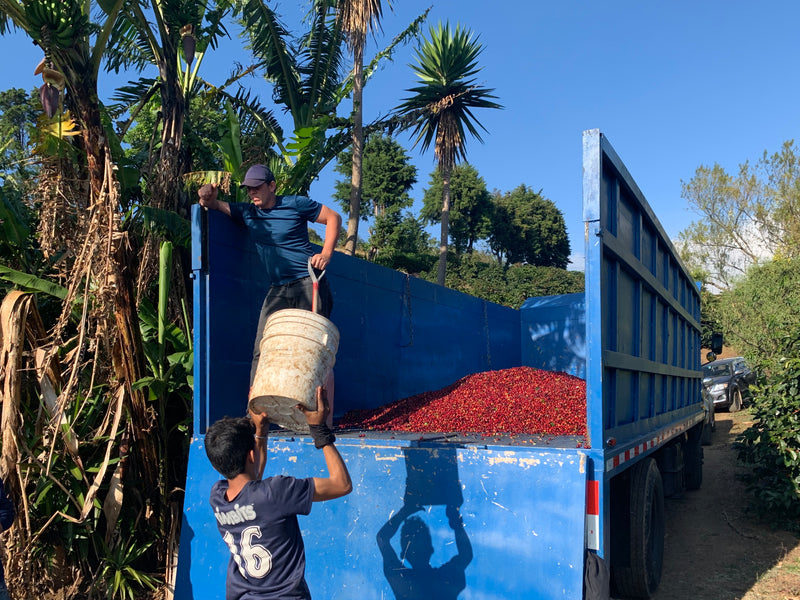
Honduras
We started working with Cafesmo, a coöperative from Honduras in 2020. Cafesmo is owned by Hidardo, a young man who comes from a coffee farmer family. He wants to support the coffee producers through these hard times and work together through his coöperative. Honduras is one of the countries where a lot of people migrate to the US because they don’t earn enough money with coffee (and other farming activities) to make a living. By focussing on specialty grade coffee, Hidardo makes sure that the producers are paid a correct price for their hard work.
Katrien visited them again in February 2022 and organised a workshop with them to upgrade their fermentations processes. They invited the inspiring Lucia Solis to teach them how to add yeast to the fermentation to control it better. Thanks to these kind of collaborations we can grow together as partners.

El Salvador
We visited El Salvador for the first time in 2018 to look for producers to work with. As always we plannend an extensive trip to a lot of producers and in the end we found Carlos Mendes from Ataco.
El Salvador is a country that doesn’t work so much in cooperatives like a lot of other countries do. Here a producer is the owner of the land and does the processing him- or herself. Carlos Mendes is a lawyer with a family history in coffee. And because of his passion for coffee, he started regrowing the coffee plants and researching about methods to grow the best quality coffee. He is still a lawyer, but is extremely passionate about his coffee. When we started working with him, he only processed natural coffees, which was an exception for El Salvador, now he also processes honey sometimes, but still mostly natural.
His coffee won the cup of excellence a few years ago and he stayed on the shortlist ever since. We tell you this, because this just shows how fanatic he is about his coffee and we love it!
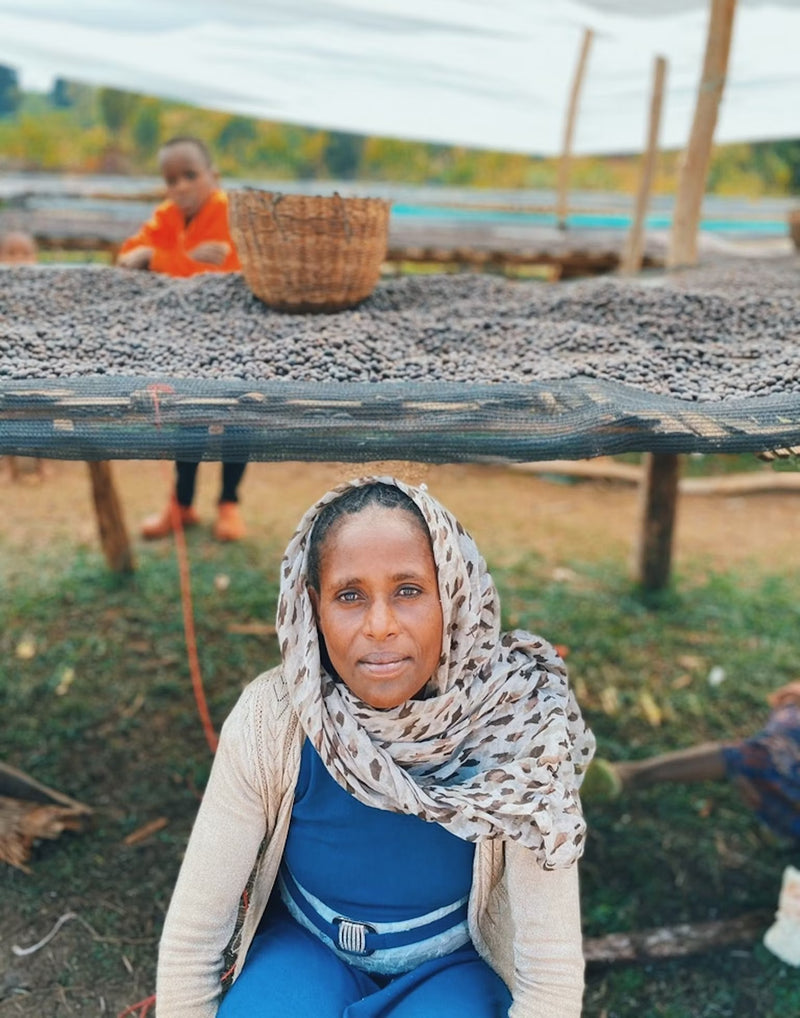
Ethiopia
For our Ethiopian coffee we work with Tsegab from Heleph Coffee. He is a young and passionate man who has a mission to sell the specialty coffee from his region directly to specialty coffee roasters like us. A lot of money and quality went to waste in the past when selling coffee to middleman, that’s why he wanted to radically change the way his family had always been working. First he studied how to get an export license, so he would export his own coffee. After that he searched for coffee roasters like us who wanted to buy directly from his washing station without passing through middle man and traders.
Heleph Coffee is a real family business of multiple washing stations in the Sidama region. Tsegab’s father, uncles and aunt are the owners of the washing stations we buy coffee from. By visiting him every year we make sure to have a good relationship with Tsegab and his family. It is one of our treasures that we discovered in the last few years.
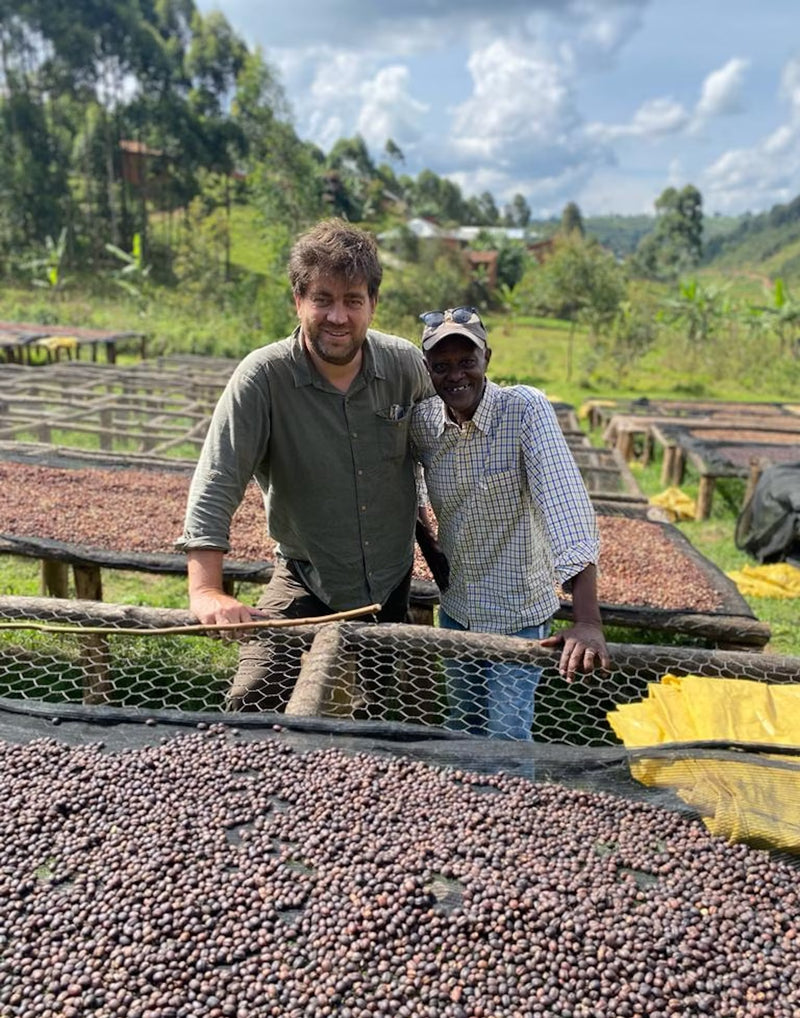
Burundi
It is very difficult to work directly with producers from Burundi, because a lot is still being managed by the government. Our relationship with Ephrem goes back since 2015 when we visited him for the first time. Ephrem has his own production and washing station, called Munkaze. We buy every year from him natural and washed coffee. It is a small volume as his production is small. Ephrem is not just a producer, he is in the first place a coffee professional and very knowledgeable about the different areas in coffee production. He is a Q grader and a Q instructor and since years working hard to bring as much knowledge as possible to coffee producers in Burundi.
His own plantation is close to Ngozi.
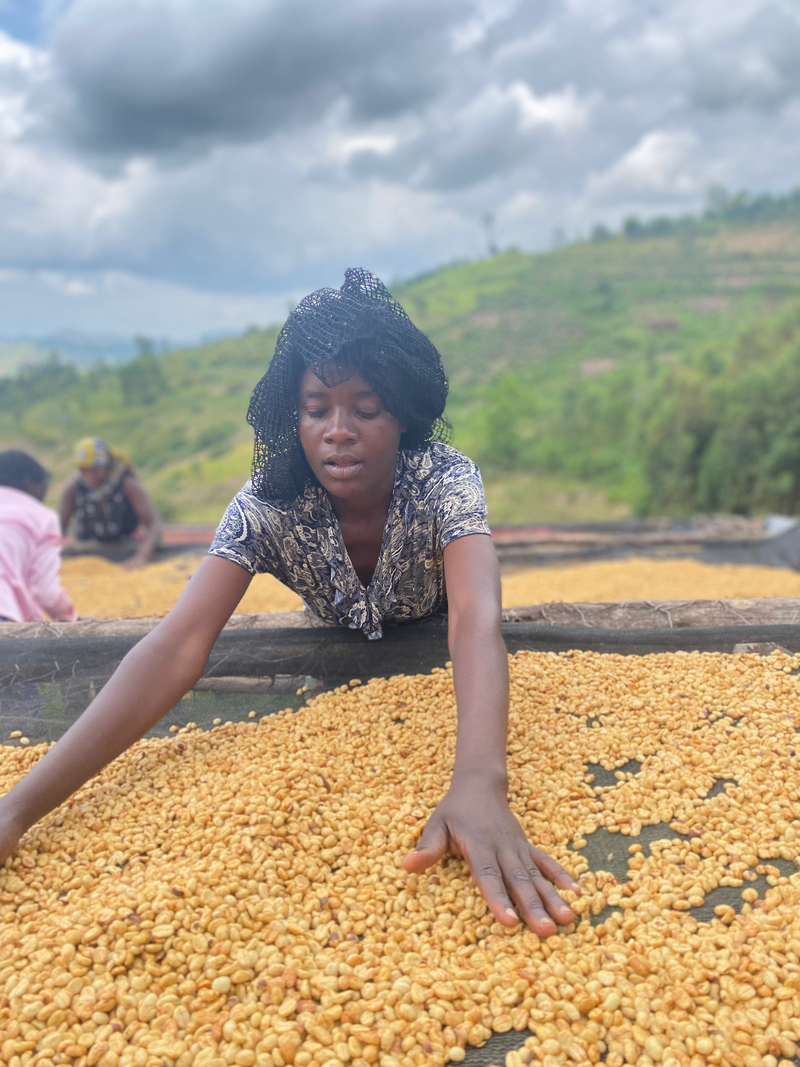
Rwanda
We always buy our Rwandan coffee from our friend Abdoul. In 2016 we’ve got an email from Abdoul’s nephew in the Netherlands, that his nephew had amazing coffee in Rwanda. We answered him kindly that we work directly with coffee producers and not via via, but if his nephew was able to send us samples, we were happy to try them. So without any expectations, we sample roasted and cupped the samples after they arrived. To our surprise, they were amazing, so we emailed his nephew to ask if we could visit Abdoul next time when we were in Rwanda.
To our even bigger surprise, Abdoul decided to come to us, and he took a plane to Belgium and came to introduce himself (out of the blue!) to us. We were very surprised because we hadn’t even talked about buying coffee from him yet. After explaining that we first wanted to see the practices in real life, we arranged that Tom would visit him a few months later. His trip to Congo and Rwanda was already planned, so it was the perfect timing.
And so Tom visited Abdoul in Rwanda and now, years later, we still buy coffee from the producers every year. Like in most countries, Abdoul is the one owning the washing station and he works with a few producers that bring their cherries to this specific station. At the time Abdoul was selling the coffee to a trader and was trying to survive, but because of the low coffee prices, he couldn’t pay the debts of the investments for the washing station. That is why he went looking for roasters who wanted to buy directly from him and so he found us! To this day he only has two customers, OR Coffee Roasters and a Japanese roaster.
The two most important coffee regions for Rwanda are Gisenyi close to Lake Kivu and the Huye District in the Southern province. Abdoul’s coffee comes from the Huye District, the biggest city in the district is Butare.
